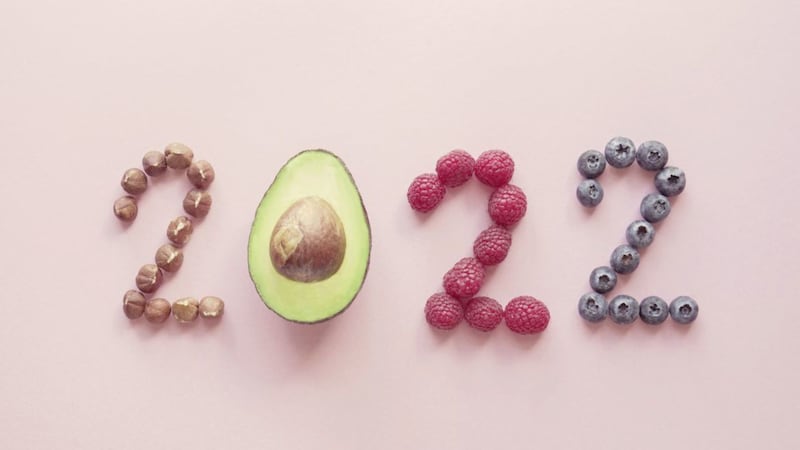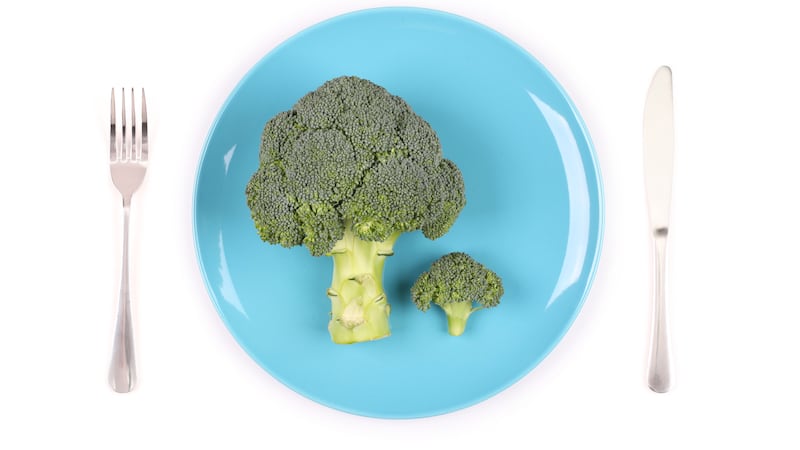NOW the partying is over and the New Year has started, I wonder if you have set yourself any resolutions to get 2022 off to a healthy start.
Today, the first day in January, usually heralds a rush of promises of no more alcohol, sugar or high calorie foods as we strive for a healthier, leaner, better version of ourselves.
What if this year was different, and instead of putting yourself on a crazy strict regime, you took things a little more gently?
When it comes to health and wellbeing, it is the little things that make a big difference. The habits that we adopt that eventually become part of our daily or weekly routine have the power to influence our mental and physical health longer term than any quick fix or fad diet.
Go easy on yourself. Build in a couple simple changes. Try a different one each week and change your health for the better.
Here are some simple ideas to get you thinking. Just choose one or two to focus on.
Cook a new recipe every week. It doesn't have to be anything complicated or time consuming. The more variety you can pack into your diet, the more nutritious it will be. Simple ideas like dinner traybakes, one pot wonders and homemade noodle pots are a great way to mix things up a little.
Choose a new food every week. If you put the same foods into your trolley week after week, then challenge yourself to try a new healthy food each week. It could be a different fruit or vegetable that you haven't had for a while, a wholegrain that you have never tasted, or a can of beans or lentils that can be easily added to curries, soups or stews to bulk things out and add an extra pop of nutrition.
Get outside every day. Even just 10 minutes a day in daylight hours can make a big difference to your energy, mood and sleep patterns.
Start menu planning. Plan what you are going to eat for breakfast, lunch and dinner. Don't commit to a whole week Just plan for three or four days at a time. Get into this routine and you will soon will save yourself time, money and effort. Write down ideas for snacks too, so you will have healthy food to snack on if you eat hungry between meals, and not be tempted by junk food or biscuits.
Drink water - two litres a day. Set a bottle on your desk. Have a glass with lunch and dinner. Have a glass as you wait for the kettle to boil for your morning coffee. These water habits will soon add up and you'll be sipping your way through two litres without a second thought.
Daily movement. Move your body very day. Walk, run, ship, hop, jump, dance around the kitchen - who cares what you do as long you move it. We are recommended to exercise for 30 minutes day, and research shows that those people who exercise for the good of their mental health will stick to it a lot longer than those who exercise for weight loss, so do what makes you happy.
Be mindful of your screen time. Switch your phone settings to do not disturb after 9pm and keep your phone out of your bedroom for a better night's sleep.
Eat healthy fats every day. Nuts, seeds, olive oil, oily fish. Eat more healthy fats and notice a difference in our skin, hair, mood, energy, hormones, cholesterol and waistline - all for the better.
Have some protein every time you eat. This will help you feel fuller for longer, and less likely to crave sugary or junk food. Good protein sources are eggs, meat, fish, chicken, nuts and seeds, beans and lentils, houmous, natural or Greek yoghurt. Aim to have a palm size portion of protein with every meal.
Big up the fibre. Do yourself a favour and replace the refined, white, high GI (glycemic index) carbohydrates with lower GI foods. Oatcakes, porridge, brown rice, wholemeal pasta are a good place to start.







